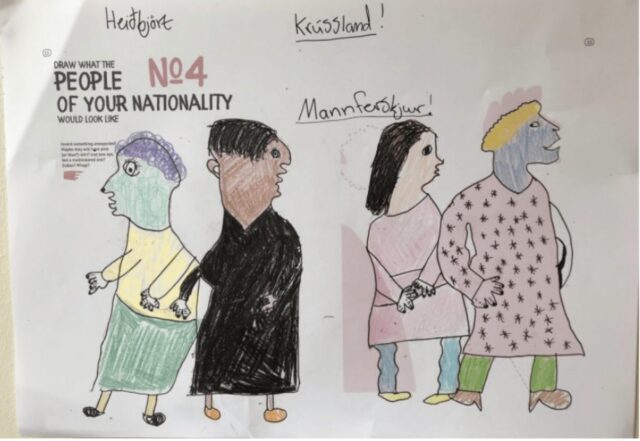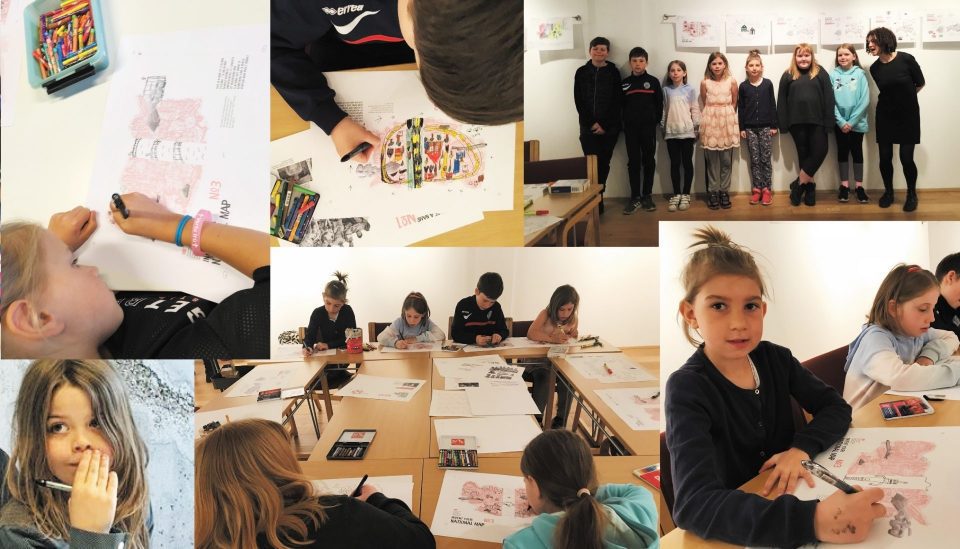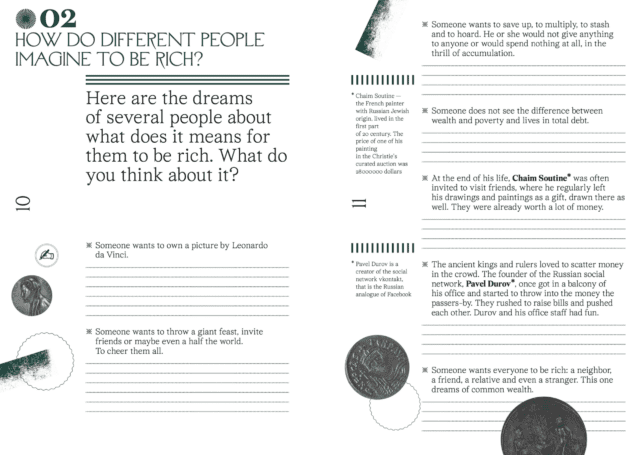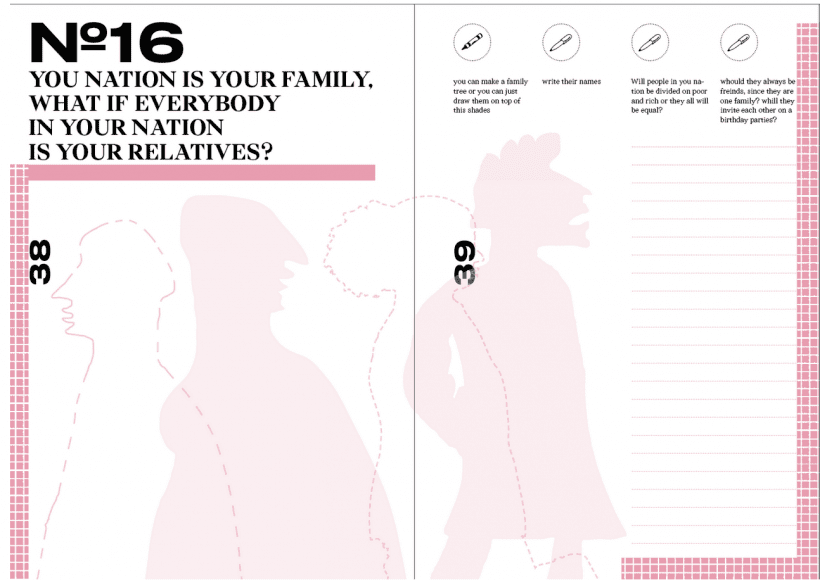In Nika’s words, the project “started partly by way of in-between conversations – emails mostly – and Skype talks with David [Graeber] (…) It bridges two worlds: academia, and children. We are not supposed to talk to children about the questions accademia asks itself – such as what death is, what money is, or just even what is family. Rather, the parents tell their children what these things are, hence reproducing their own models. But anthropology is about something else.”
A4Kids provides a framework for children to think through what Dostoevsky’s calls the ‘cursed questions’.
Through children’s workbooks and workshops, A4Kids provides a framework for children to think through what Dostoevsky’s calls the ‘cursed questions’ (проклятые вопросы) – questions about life and its meaning we all ask ourselves during our lifetime. We all come to form our own understandings of wealth, death, sovereignty, nations – and more often than not, these are shaped by the cultural biases we inherit.
The A4Kids workshops and workbooks are designed to create conversations on these subjects – by “re-describing essential aspects of human life in simple terms”, by leaving questions open-ended, by presenting examples from various cultures across time and space, by giving space for critical thinking.


An example of how the books can change with time: here Nika included the work of some of the participants in a workshop in Iceland on the theme of ‘nations’ into the ‘Nations’ workbook.
The aim is twofold: to show children that the value systems we inherit are far from natural, and to encourage them to jointly reflect over values – and dare to come up with alternatives.
The 14 workbooks, aimed at children of all ages, are the results of collaborations between artists such as Nika and scholars. They were conceived to function in a somewhat more open format then is habitual. Nika sees her role and that of the authors, scholars and artists who contributed as ‘facilitators’: their job is to put together the questions and bring ‘whatever materials we have right now in order to answer these. But the resulting workbooks should never ‘put the final dot’: rather, their format makes it easy for anyone – parents and children included- to revisit, amend, add to and customize them.
A4Kids shows children that the value systems we inherit are far from natural and encourages them to dare to come up with alternatives.
This week, we’ll be sharing with you a two-part interview with Nika, as well as two articles are written by Nika about her work, the philosophy and methodologies behind it, how she was inspired to start it, the challenges she ran into, and why she thinks it’s so important to bring anthropology to children.


